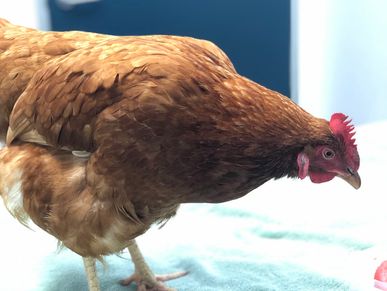Pet info
Exotics care
Transporting your pet
Illness in exotics
Exotic pets have many unique husbandry and dietary requirements that need to be met to ensure their health. Click here for info on housing, feeding and more.
Illness in exotics
Transporting your pet
Illness in exotics

Exotic pets are masters at hiding signs of illness until they are critically sick. Click here for signs that your pet may be sick.
Transporting your pet
Transporting your pet
Transporting your pet

Click here for information on safely transporting your exotic pet.
Illness in exotic pets
Exotic pets are masters at hiding signs of illness until they are critically sick. It is not unusual for exotic pets to present to a veterinarian when their illness is already very advanced. This is why it is important to get your pet checked by a veterinarian if you notice that something is not quite right. If your pet appears healthy, we recommend regular check-ups to maximise the chance of picking up health problems in the early stages.
Signs of illness
Below is a list of some clinical signs that can indicate your exotic pet is sick:
- lethargy/reduced activity
- not eating, reduced appetite, difficulty eating, change in food preference
- fluffed up (birds)
- hunched and closing eyes
- breathing problems, voice loss/change (birds)
- nasal discharge, eye discharge, sneezing
- straining, prolapse, abnormal urine/faeces/droppings
- lack of faeces/urine production
- bleeding
- excessive egg laying
- vomiting/regurgitation, drooling
- limping, difficulty moving
- skin lesions, itchy skin, feather/fur loss, feather picking
- overgrown teeth/beak
- excessive thirst/appetite
- abnormal floating in an aquatic species
If you notice any of these signs or anything that is out of the ordinary for your pet, please seek veterinary attention.
Exotics Pet insurance
Unexpected illness and injury can happen to any pet, and can place an emotional and financial burden on pet owners. In Australia, pet insurance has been widely available for dogs and cats for a long time. Fortunately, as of a few years ago, pet insurance is also available for exotics.
For peace of mind, please consider pet insurance or setting up an emergency fund for your exotic pet.

Exotics Care
Reptiles
Bearded dragon care (pdf)
DownloadBlue-tongued lizard care (pdf)
DownloadFreshwater turtle care (pdf)
DownloadMorelia spilota (diamond, carpet) python care (pdf)
DownloadAntaresia (Children's, Stimson's, spotted) python care (pdf)
DownloadAspidites (woma, black-headed) python care (pdf)
DownloadFeeder cricket care (pdf)
DownloadReptile enrichment (pdf)
DownloadTransporting your exotic pet to the vet
To ensure exotic pets stays safe during transport, they should be transported in secure carriers/enclosures.
Birds
- Small birds (budgies, canaries) can be transported in their regular cage if it is small enough for transport.
- Birds living in larger cages or aviaries can be transported in smaller bird cages or small pet plastic carriers.
Mammals
- Rabbits, guinea pigs and ferrets can be transported in small pet or cat plastic carriers.
- Smaller rodents (rats/mice) can be transported in their regular cage if it is small enough for transport or small pet plastic carriers.
Reptiles
- Snakes and lizards can be transported in a pillowcase or a secure plastic container/carrier with ventilation holes.
- Turtles can be brought in a secure ventilated moistened plastic container (moistened towels on the bottom). Do not transport turtles submerged in water.
Amphibians (frogs, axolotls)
- Frogs can be brought in a secure ventilated moistened plastic container (moistened paper towels on the bottom). Do not transport frogs submerged in water.
- Axolotls are completely aquatic and must be transported submerged in water. Transport in their own tank water, in a secure container (eg. plastic container, glass container, esky). Axolotls do not tolerate warm water, so prevent overheating during transport.
Fish
- Transport in their own tank water, in a secure container (eg. plastic container, glass container, esky). To improve oxygenation during transport, secure the top with a mesh (instead of a solid lid) or use an air stone.
Aquatic animals (aquatic reptiles (eg turtles), amphibians, fish)
- Please bring extra tank water for testing or if sedation of your aquatic pet is required
- For reptiles/frogs: at least 100mL
- For fish and axolotls: at least as much as the amount of tank water that the pet is coming in

cockatiel
Copyright © 2025 Avian & Exotics Service - All Rights Reserved.
This website uses cookies.
We use cookies to analyze website traffic and optimize your website experience. By accepting our use of cookies, your data will be aggregated with all other user data.


